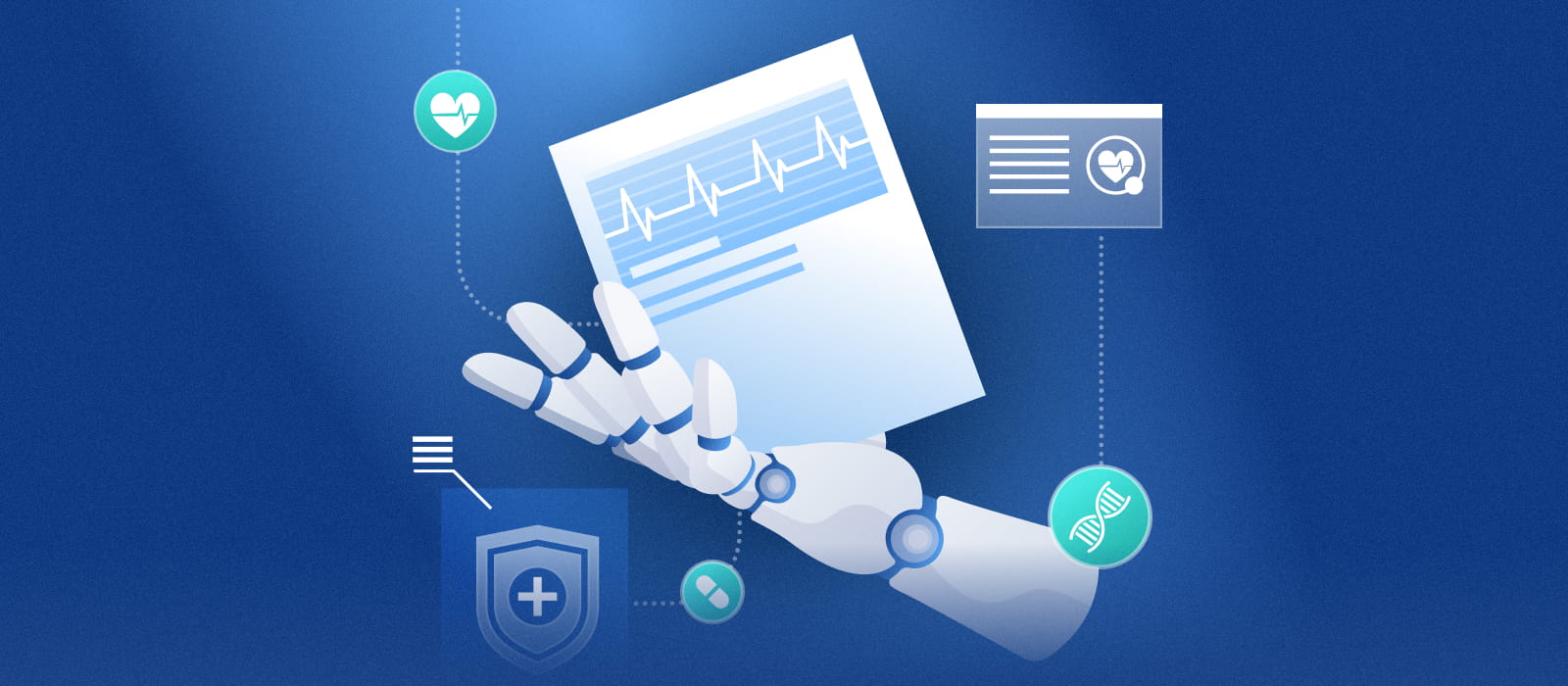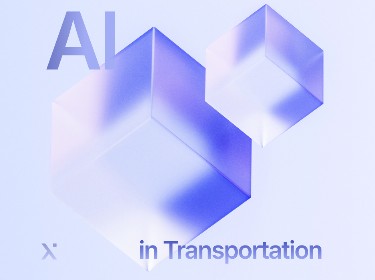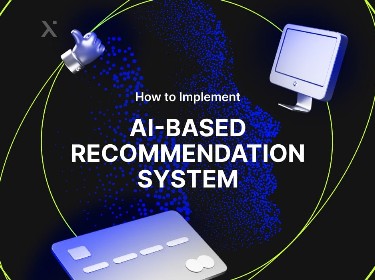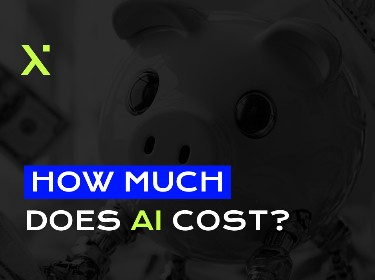Generative AI has been gradually gaining traction across various spheres, with healthcare standing out as a notable area of application. So, how exactly can this cutting-edge technology influence and mold such a critical and vital industry?
As generative AI (GAI) continues to evolve at a rapid pace, its applications in the medical realm are expanding, promising transformative solutions and unparalleled opportunities for healthcare providers and patients alike.
A testament to its rising prominence, the global generative AI market size is projected to soar to approximately $118.06 billion by 2032, which underscores its potential to reshape numerous healthcare workflows and operations.
Read on to learn more about generative AI in healthcare and explore the myriad ways this technology is set to redefine the future of healthcare.
Dive into our detailed blog article for key insights and data on the generative AI market
What is generative AI in healthcare?
Generative AI in healthcare involves the application of sophisticated artificial intelligence models designed specifically to address the unique challenges and needs of medical practice and research.
Some of the primary capabilities of generative AI in healthcare models include:
- The creation of unique data samples, serving to expand the scope of information and addressing gaps that might be present in the original dataset.
- The accurate prediction of patient outcomes, helping healthcare professionals make more informed decisions about treatments and interventions.
- The creation of in-depth simulations derived from real-world data, enabling researchers and clinicians to visualize scenarios and test hypotheses in a controlled environment.
These capabilities of generative AI in healthcare introduce new dimensions to medical research and practice, potentially influencing how data is interpreted and decisions are approached in the field.
What are the emerging applications of generative AI in healthcare?
![]()
While generative AI in healthcare is still in its infancy, several validated use cases span various healthcare sectors. These prominent applications include patient diagnosis and medical imaging, personalized treatment and care recommendations, clinical documentation and healthcare management, drug discovery and development, as well as medical research and clinical trials.
Let’s delve deeper into each of these areas.
Patient diagnosis and medical imaging
Healthcare professionals have already adopted computer vision services and deep learning techniques for medical analysis. However, generative AI can also be utilized to analyze medical imagery, such as CT, PET scans, X-rays, and MRIs, to improve healthcare diagnostics. These sophisticated models recognize patterns associated with specific diseases and automatically detect abnormalities in patient images.
Through the creation of high-quality medical images, generative AI not only speeds up the diagnostic process but also heightens its precision, marking a significant stride towards genuinely personalized medicine.
Generative AI’s role in healthcare imaging appears promising, as numerous healthcare providers and tech companies are focusing on this application. For instance, NVIDIA introduced RadImageGAN, a cutting-edge multi-modal generative AI for radiology, capable of generating 165 distinct classes across 14 anatomical regions, each with various pathologies.
See how our AI developers created this cutting-edge retina disease diagnosis tool
Personalized treatment and care recommendation
GAI thoroughly analyzes extensive datasets, ranging from genetic profiles to electronic health records, to formulate personalized treatment recommendations, identify patterns, forecast potential disease trajectories, and even predict a patient’s response to certain treatments. This innovative approach ensures healthcare decisions are tailored to each individual’s specific context and requirements.
Besides, by reviewing a patient’s medical history and lifestyle, generative AI is poised to offer real-time monitoring and insights in the future, fostering preventive care and healthy habits across different platforms.
GAI is also capable of analyzing data from wearables like smartwatches to offer personalized care recommendations. Companies like Zepp Health are leveraging this technology, with products such as Zepp Aura providing tailored sleep coaching, real-time AI-generated sleep music, and an AI chat service for wellness queries.
What is more, healthcare professionals are increasingly considering the integration of specialized chatbots driven by generative AI to deliver prompt and personalized advice to patients.
For instance, Babylon Health incorporates generative AI into its trailblazing digital health chatbot, which analyzes patient symptoms and offers tailored medical advice. Such technology not only deepens the understanding of evolving patient risk profiles but also refines care delivery, making it both individualized and economical.
Want to elevate your customer experience? See how our chatbot developers can craft the perfect solution for your business
Clinical documentation and healthcare management
Leveraging advanced algorithms and natural language processing (NLP), generative AI streamlines tasks such as form-filling and scheduling by automating these processes. It generates simulated patient data that enhances electronic health record systems while upholding privacy standards. This synthetic data aids in refining system functionality and enhancing data-driven insights, all while safeguarding patient privacy and compliance with data protection regulations.
When added to EHR systems, GAI can write down medical conversations and manage information such as patient histories and lab results. This cuts down on manual work and liberates healthcare professionals, allowing them to redirect their focus from paperwork to direct patient care.
For example, DeepScribe, a company from California specializing in AI-driven documentation, has effectively used generative AI to cut down three hours of daily administrative tasks for healthcare workers.
Drug discovery and development
Generative AI in healthcare drug discovery can help biopharmaceutical companies generate virtual compounds and molecules tailored with specific properties. By tapping into expansive chemical databases, generative AI models study existing drug structures and their attributes to develop innovative therapeutic agents. This accelerates the recognition of potential drug candidates, significantly shortening the time conventionally required to discover new treatments.
GAI’s capabilities in drug discovery extend beyond just molecular design. It also enables the virtual synthesis of diverse data types, from images to speech, broadening research horizons.
For example, researchers at the University of Toronto utilized generative diffusion techniques, similar to tools like DALL-E, to design previously unknown proteins. With such breakthroughs, generative AI is poised to streamline and enhance the drug development journey.
Medical research and clinical trials
It is expected that the global generative AI in the clinical trials market will hit $1,122 million by 2032.
At the heart of this growth lies generative AI’s prowess in healthcare research. It has the ability to pinpoint genes and proteins linked to specific diseases, serving as a beacon for new drug targets. Furthermore, with its capability to create synthetic datasets, GAI equips researchers with invaluable insights, all while maintaining the utmost patient privacy.
Notably, one of its standout innovations is simulating virtual patient groups. This powerful feature of generative AI in healthcare allows for preliminary testing of treatments in a risk-free digital environment, streamlining the process and accelerating the transition from initial research to real-world application.
Not only AI: explore how the healthcare sector stands to benefit from virtual reality (VR) training
What are the benefits of using generative AI in healthcare?
![]()
Generative AI in healthcare provides a plethora of advantages to healthcare providers, patients, medical institutions, and other relevant stakeholders. These benefits include enriched decision-making, heightened patient engagement, increased access to healthcare, and streamlined health data management.
Enriched decision-making among healthcare providers
With generative AI, medical decisions can be based on comprehensive and meaningful data analyses, transcending human limitations and even errors in processing speed and pattern recognition. This ensures that even nuanced or rare patient details are not missed, enhancing the precision and efficacy of treatments.
Besides, incorporating real-time updates and vast medical databases, generative AI offers insights from the latest research and global trends. As a result, healthcare professionals benefit from a dynamic and evolving knowledge base, optimizing patient care pathways.
Heightened patient engagement
Generative AI-driven tools and platforms empower patients to actively monitor and understand their health metrics by sending timely reminders, visualizing patient progress, and even predicting potential health risks based on the individual’s input data.
Thanks to this, patients gain a clearer perspective of their well-being and are more likely to take proactive steps, fostering a collaborative relationship between the patient and healthcare providers.
See how PixelPlex engineered this blockchain-powered solution for managing health data and providing incentives to improve health outcomes
Increased access to healthcare services
By examining local health trends and data, generative AI can craft tailored health advisories for specific populations. This ensures that individuals receive high-quality, region-specific health information and guidance, even in remote or underserved areas.
Streamlined health data management
Generative AI enhances health data management by automatically sorting and structuring vast patient data, enabling healthcare professionals to swiftly understand a patient’s history.
On top of this, it detects and addresses missing information in data records, ensuring complete patient profiles. This leads to a streamlined, user-friendly management system, alleviating administrative tasks and bolstering document precision.
Check out our guide to explore the most prominent generative AI applications and use cases across different industries
Current limitations and risks of generative AI in healthcare
Generative AI in healthcare has opened numerous opportunities, and we still have many more sophisticated use cases to discover.
However, like any technology, it comes with risks and limitations. The most pressing ones include high implementation costs, the challenges of training on healthcare data, and ethical considerations.
High implementation costs
While generative AI in healthcare holds great promise, its adoption and maintenance demand significant investment, potentially diverting resources from other crucial healthcare endeavors.
As well as this, some healthcare providers might acquire generative AI solutions without fully understanding their advantages, resulting in inefficient spending.
To prevent this, conducting a thorough cost-benefit analysis is essential to ensure that investments in generative AI genuinely enhance patient outcomes and operational efficiency.
Complexity of training healthcare data
In healthcare, generative AI models must analyze diverse data points, including sensitive personal patient records like genetic details and medical histories. If not well-guarded, this data is susceptible to cyberattacks, jeopardizing the AI model’s integrity and patient confidentiality.
Thus, stringent cybersecurity protocols and other protective measures are essential to protect the data and maintain the trust patients have in the healthcare system.
Ethical considerations
Generative AI’s main applications in healthcare often involve suggesting alternative treatment routes or medical solutions based on identified patterns, leading to profound ethical concerns.
When generative AI recommends a new or non-traditional treatment method, the challenge lies in determining who verifies its suitability and ensuring the recommendation aligns with the patient’s best interest.
These challenges underscore the pressing need for robust ethical guidelines specific to generative AI in healthcare, and the growing demand in a trusted custom healthcare software development company’s expertise.
Unravel the complexities of AI and privacy — dive into our article to discover key business concerns and their innovative solutions
Closing thoughts
Generative AI in healthcare has unlocked unprecedented potential. By streamlining diagnosis processes, personalizing patient care, and even fostering drug development, this technology stands at the forefront of a new medical revolution, promising many more exciting applications and use cases.
It is an exciting shift, but we should not forget the importance of the human touch in healthcare and the challenges we have to overcome to truly benefit from this AI.
Our PixelPlex AI development company is leading the way in AI advancements. We bridge the gap between AI’s promise and real-world healthcare solutions. When you partner with us, you are not just getting cutting-edge technology — you’re ensuring it is used responsibly and ethically.
Join us on this journey to a brighter healthcare future, and let PixelPlex’s experts work alongside you.




